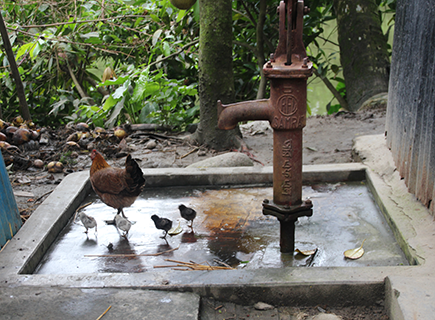Arsenic Precision Innovative Rapid Easy-to-use Test (AsPIRE Test)
Arsenic contamination of drinking water in Bangladesh has been called ‘the largest mass poisoning in history’ by the World Health Organization. This toxic compound is found naturally occurring in shallow groundwater and an estimated 50-70 million people have been chronically exposed over many years, leading to numerous health problems and deaths.
There are an estimated one million new tube wells dug per year in Bangladesh, which require urgent testing, in addition to many of the existing ten million tube wells that have never been tested. Water testing is the key to arsenic mitigation but until now there has been no satisfactory point-of-use test.
This project will field trial the AsPIRE test, an affordable, easy-to-use arsenic sensor based on the well-known diabetes test, that promises to revolutionise the way the problem is tackled.
Arsenic testing is vital for ensuring access to safe water, for example by providing community-scale arsenic filters or installing deep tube wells, as well as education within villages of the dangers.
This will in particular benefit women who are generally responsible for daily water collection and who are vulnerable to exclusion and marginalisation if they contract arsenic poisoning.
This project is one of twelve Catalyst Projects funded through our Partnership Funding.

Dates
July 2016 – October 2017
Country
Bangladesh
Organisations
- Bio Nano Consulting
- University of Dhaka
